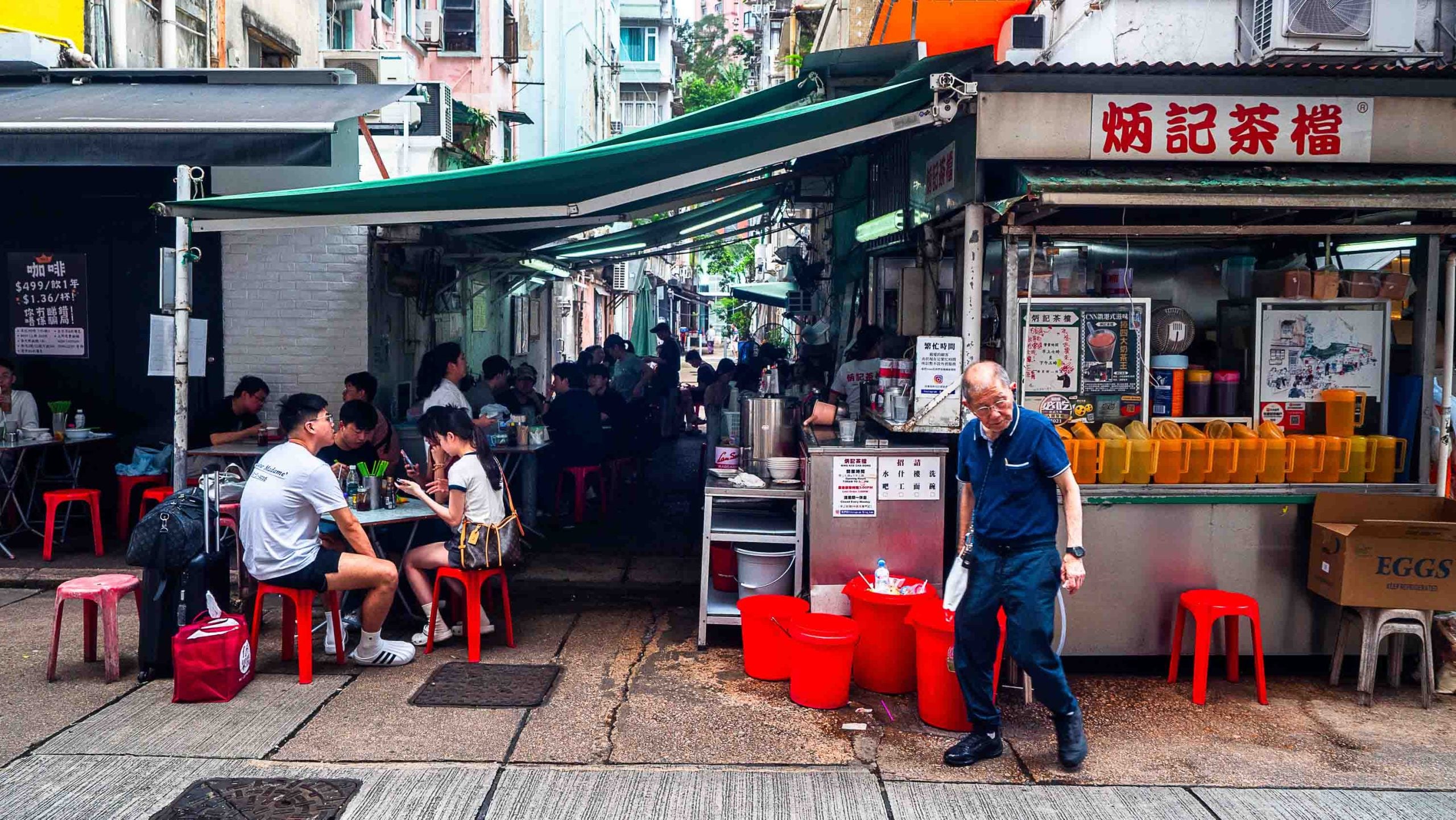From an architectural standpoint, a few things can be defined as Shanghai landmarks: The lane houses in the former French Concession, the futuristic skyscrapers along the Pudong riverfront, basically everything near the Bund, and perhaps even FamilyMart.
With 3,045 shops across the city’s 16 districts, it’s safe to say that the Japanese chain of convenience stores is by far the most numerous in Shanghai. FamilyMart is open around the clock, selling drinks, snacks, coffee, and ready-to-eat meals, and its ubiquity reflects the fast-paced lifestyle in China’s most vibrant metropolis.
Since the implementation of citywide lockdowns in Shanghai, some have missed the store so much that they’ve created renditions of the iconic FamilyMart jingle.
Although some 26 million residents are required to stay at home, many FamilyMart stores continue to operate — albeit in a much different way than usual.
“My three colleagues and I are sleeping and eating in the store. We even bought a big bucket for showering,” says Wang Jinfeng, a FamilyMart employee who has been living in her place of work in the central district of Jing’An for nearly three weeks.

Family Mart employees have dinner on a window-facing table usually reserved for customers
Wang tells RADII that although her family lives just 20 minutes away, she hasn’t seen them since April 1, when Shanghai’s western portion went into lockdown. She has no clue when she’ll be able to go home.
“Every day, we wake up, disinfect the whole store, and then receive lunch boxes [from FamilyMart’s food production facilities]: That’s when the real work begins,” says Wang.
While most of FamilyMart’s packaged products are not being restocked at present, the employees still receive more than 1,000 freshly-made lunch boxes and sandwiches every day.

Packed lunch boxes and sandwiches ready for distribution
According to Wang, most of FamilyMart’s lunch boxes are purchased by hotels that have been converted into quarantine facilities.
A limited number of lunchboxes are made available to the public and can be ordered via WeChat group chats. Each employee has been placed in charge of a group chat and oversees orders from locked-down locals who are hungry for FamilyMart delicacies.
After packing the lunch boxes, Wang and her colleagues post pictures of the prepared goods in the various group chats. This lets their customers know that they can now arrange to have their orders delivered using apps like Meituan and Ele.me. Delivery fees usually range from 16 to 41 RMB (around 2 to 6 USD), depending on distance and demand.

An example of products that Shanghai residents can purchase via FamilyMart’s group chats
With around 300 members in each group chat, Wang and her colleagues are often flooded by a tidal wave of text messages.
“If a customer’s compound is close to the store, we try to carry out deliveries by ourselves. But we are often too busy to process all the orders,” she confesses.
While living in a convenience store for over three weeks might seem like a rather stressful experience, Wang is in high spirits.
“Compared to our regular working schedule, this is not that bad. Normally we are open 24/7, and now we work less than 10 hours per day.”
Wang adds that her colleagues and her are so close that they almost feel like a family.
“We sometimes quarrel, naturally. After all, this is the first time we have found ourselves in this situation, and it was hard to adjust the workflow initially,” she says.

FamilyMart employees hang their clothes on the shelves usually used to display bread and pastries
Given that Shanghai’s daily case numbers are still clocking in at well above 15,000, it is likely that Wang and her colleagues will have to live in the convenience store for at least a couple more weeks.
In-text images courtesy of Wang Jinfeng; cover image via Wikimedia


















